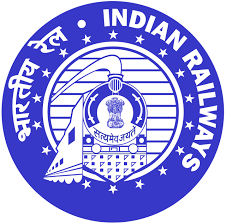How To Get A Job In Indian Railways?

Strong 8k brings an ultra-HD IPTV experience to your living room and your pocket.
An immense nexus of transportation is the Indian Railways, it is among the most significant employers in this country. A railway career offers stability, job security as well as an opportunity for national infrastructure development. One can increase their possibilities of getting a desirable position through proper preparation and plans even though there might be tough competition.
Grasping the Indian Railways Recruitment Process
The channels that the Railways mainly use to recruit are:
Railway Recruitment Boards (RRBs): There are 19 railway recruitment boards. These regional boards organize examinations for multiple non-gazetted positions, as Group D and Group C positions.
Union Public Service Commission (UPSC): UPSC holds the Indian Engineering Services (IES) exam for Group A positions.
Getting Ready for RRB Tests:
Specify Your Ambition: Decide on the exact position you want regarding your qualifications and preferences.
Be Aware of the Eligibility Norms: Look up the age limit, education qualifications, and other prerequisites applicable to the post you want.
Get Acquainted with the Exam Pattern: Know well about the course outline, test structure and score distribution.
Collect Study Materials: Locate textbooks, learning resources and exercise papers that are pertinent.
Draft a Study Schedule: Create an organized study timetable encompassing all topics.
Practice Frequently: Work on previous years’ question papers and undertake mock exams to evaluate your advancement.
Time Control: Understand how to use your time wisely during the test.
Essential RRB exams and vacancies
RRB NTPC: Non-Technical Popular Category exam for different jobs.
RRB ALP: Assistant Loco Pilot exam.
RRB Group D: For beginner-level jobs in Indian Railways.
RRB JE: Junior Engineer exam.
Tips for Success:
Follow the Reports: Monitor recent alerts and alterations made by RRBs and UPSC.
Approach People to Learn: Think of joining tuition or e-learning classes for conducted assistance.
Stay Positive: Maintain a positive mindset and believe in your abilities.
Steer Clear of Rumours: Be careful with false information and turn to official sources instead.
Rehearse for Interviews: Answer likely interview questions during practice.
Additional Considerations:
Physical Fitness: For certain posts, physical fitness tests may be required.
Medical Fitness: Ensure you meet the medical standards set by the Railways.
Reservation: Candidates from reserved categories may have certain benefits.
Corruption: Be aware of corruption and avoid any illegal practices.
Understanding the Different Roles in Indian Railways:
Indian Railways has numerous types of jobs that come with their duties and obstacles. Some of the familiar ways to get into this line of work include:
Engineering Roles: During existing railway structures, civil engineers, mechanical engineers, electrical engineers or signal & telecommunication engineers play a major role.
Operational Roles: Train drivers, guards, station masters and commercial staff are responsible for the seamless functioning of trains as well as managing stations.
Administrative Roles: Handling administrative roles are clerical people, account officers and human resource professionals.
Technical Roles: Technicians have specializations in many fields including electrical, mechanical and signal maintenance.
Career Progression in Indian Railways:
Railways provide a steady career trajectory including chances for advancement and development. Regular promotions are determined by factors such as seniority, skills demonstrated through performance appraisals and educational qualifications. Employees can also benefit from attending programs that facilitate learning in various fields.
Benefits of Working in Indian Railways:
Job Security: Railways jobs are considered the most secure jobs in terms of job security.
Pensions and other specific benefits: Employees have a right to pension along with some additional advantages such as medical care and house accommodations.
Work-Life Balance: The Railways frequently offer a fair work-life balance.
Challenges and Considerations:
Job Competition: There can be severe competition amongst people seeking jobs in the Railways.
Job Changes: Transferring to different locations may be required from the employees at one time or another.
Red tape: Occasionally, the Railways might be caught up in red tape that affects its decision-making processes as well as the efficiency with which it operates.
Getting a job in Indian Railways is the best decision you can ever make for your career. You need to know everything about the recruitment process if you want to increase your chances of getting it, do thorough preparations and remain focused at all times. Yes, consistency and hard work will indeed take you far on this journey towards making your dreams come true.
Note: IndiBlogHub features both user-submitted and editorial content. We do not verify third-party contributions. Read our Disclaimer and Privacy Policyfor details.







